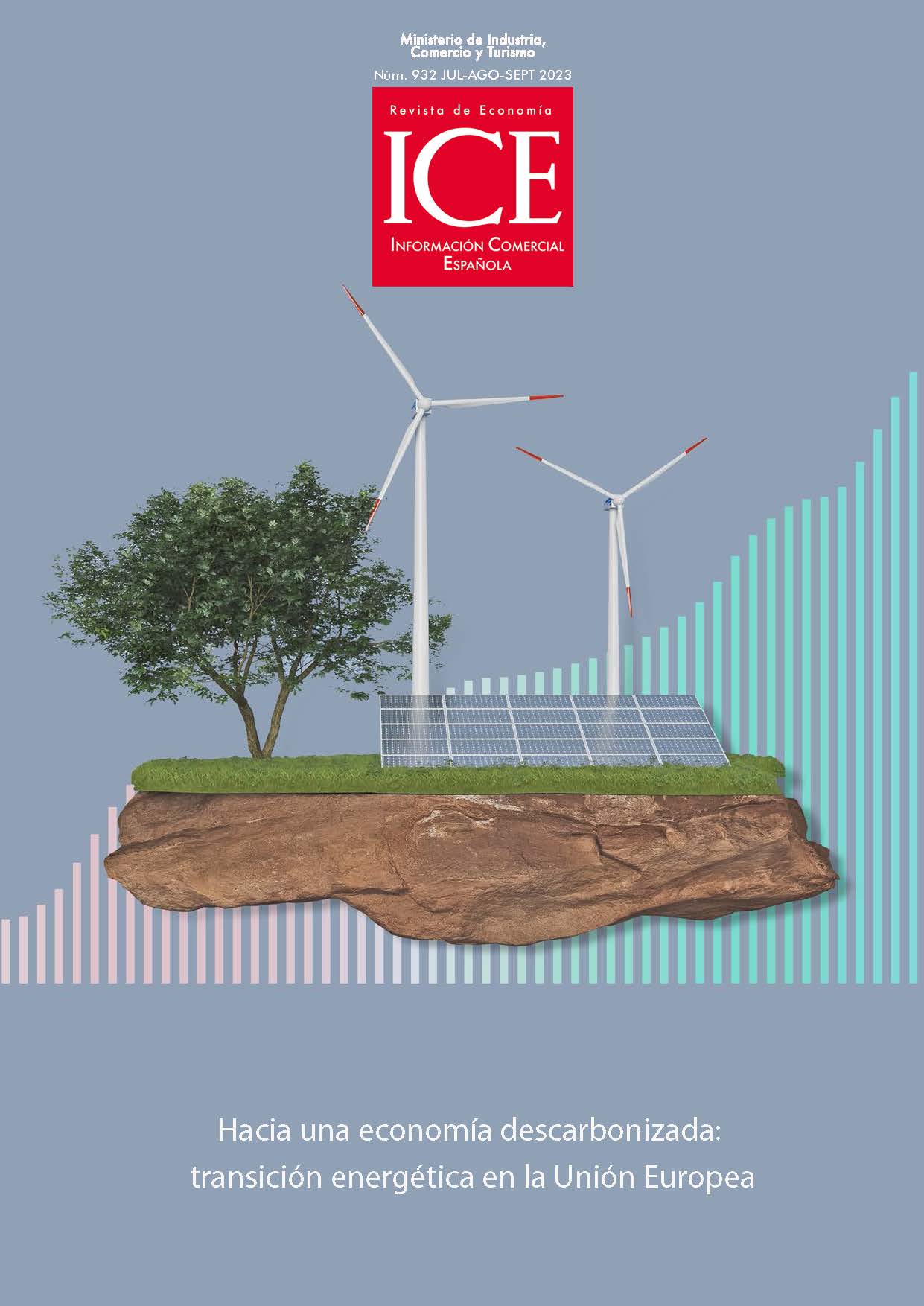Marco general de la política energética europea y sus avances hacia la neutralidad climática
##plugins.themes.bootstrap3.article.sidebar##
Descargas
##plugins.themes.bootstrap3.article.main##
Este artículo repasa los diferentes aspectos más relevantes experimentados por la política energética de la Unión Europea. Su origen, los principales avances y los pasos a recorrer para consolidar la descarbonización de la economía en 2050. El artículo concluye con algunas consideraciones finales en cuanto a la necesidad de establecer una nueva política económica donde la regulación adquiera una dimensión a gran escala.
##plugins.themes.bootstrap3.article.details##
Amoroso, S., & Audretsch, D. B. (2020). The role of gender in linking external sources of knowledge and R&D intensity. Economics of Innovation and New Technology, 31(1-2), 3-19. https://doi.org/10.1080/10438599.2020.1844038
Burger, M., Stavropoulos, S., Ramkumar, S., Dufourmont, J., & van Oort, F. (2019). The heterogeneous skill-base of circular economy employment. Research Policy, 48(1), 248-261. https://doi.org/10.1016/j.respol.2018.08.015
Consoli, D., Marin, G., Marzucchi, A., & Vona, F. (2016). Do green jobs differ from non-green jobs in terms of skills and human capital? Research Policy, 45(5), 1046-1060. https://doi.org/10.1016/j.respol.2016.02.007
Costa-Campi, M.ª T., Jové-Llopis, E. y Choi de Mendizábal, Á. (2021). Empleos que demandará el sector energético: nuevas oportunidades sostenibles. Fundación Naturgy. ISBN: 978-84-09-37643-8. https://ieb.ub.edu/wp-content/uploads/2022/02/empleos-que-demandara-el-sector-energetico.pdf
Díaz-García, C., González-Moreno, A., & Sáez-Martínez, F. J. (2013). Gender diversity within R&D teams: Its impact on radicalness of innovation. Innovation: Management, Policy and Practice, 15(2), 149-160. https://doi.org/10.5172/impp.2013.15.2.149
Foro Económico Mundial. (2020). The Future of Jobs Report 2020. Switzerland. https://www3.weforum.org/docs/WEF_Future_of_Jobs_2020.pdf
IEA. (2022a). World Energy Outlook (WEO) 2022. Paris. https://www.iea.org/reports/world-energy-outlook-2022?language=es
IEA. (2022b). World Energy Investment 2022. Paris. https://www.iea.org/reports/world-energy-investment-2022
IEA. (2022c). World Energy Employment. Paris. https://www.iea.org/reports/world-energy-employment
IEA. (2023). Energy Technology Perspectives 2023. Paris. https://www.iea.org/reports/energy-technology-perspectives-2023
IRENA. (2019). Renewable Energy: A Gender Perspective. Abu Dhabi https://www.irena.org/publications/2019/Jan/Renewable-Energy-A-Gender-Perspective
IRENA. (2022). Renewable Energy and Jobs: Annual Review 2022. Abu Dhabi. https://www.irena.org/-/media/Files/IRENA/Agency/Publication/2022/Sep/IRENA_Renewable_energy_and_jobs_2022.pdf?rev=7c0be3e04bfa4cddaedb4277861b1b61
Kanellakis, M., Martinopoulos, G., & Zachariadis, T. (2013). European energy policy-A review. Energy Policy, 62, 1020-1030. https://doi.org/10.1016/j.enpol.2013.08.008
Ringel, M., & Knodt, M. (2018). The governance of the European Energy Union: Efficiency, effectiveness and acceptance of the Winter Package 2016. Energy Policy, 112, 209-220. https://doi.org/10.1016/j.enpol.2017.09.047


